PAUL KUPPERBERG pays a BIRTHDAY TRIBUTE to one of the late greats of the Silver and Bronze Ages…

Two years ago, in remembrance of his birthday, I wrote about MY 13 FAVORITE E. NELSON BRIDWELL PROJECTS, so this year, I thought I would let Nelson speak for himself through this interview from New Media Publishing’s Comics Feature #10 (July 1981)
E. Nelson Bridwell (September 22, 1931 – January 23, 1987) is a name that should be familiar to every fan of DC Comics’ Silver and Bronze Ages. Starting at DC in 1965 as assistant to Superman editor Mort Weisinger, Nelson would spend the next 30 years helping shape the adventures of the Superman family of characters as both an editor and a writer. Nelson had an encyclopedic mind and was an expert on not only DC’s history and continuity, but the Bible and the works of Shakespeare as well, but we knew him mainly as the company’s Chief Continuity Cop.
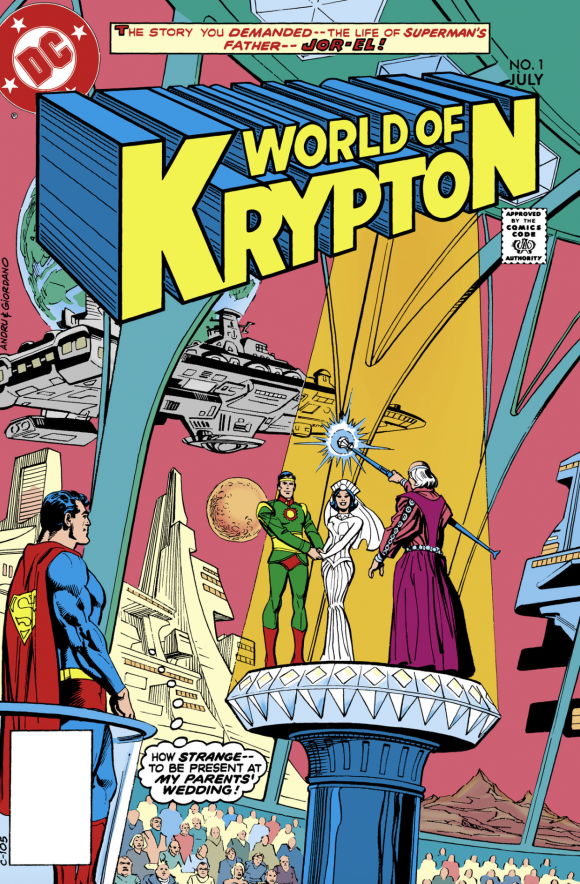
Nelson was one of the first professionals I ever met, in 1971 when Paul Levitz and I went up to DC to gather news for our fanzine Etcetera (which would become The Comic Reader). Later, he would serve as my collaborator or editor on two of my early high profile assignments, 1979’s World of Krypton (comics’ first miniseries) and 1981’s Secrets of the Legion of Super-Heroes. As a writer on his own, Nelson wrote for Mad (1956 – 1975), created the original Secret Six (1968), and the humor series The Inferior Five (1966) and the feature The Maniaks (1967), as well as writing the Batman syndicated newspaper strip and Shazam! (1974–78, 1982–83), the Legion of Super-Heroes, Supergirl, and countless other stories.
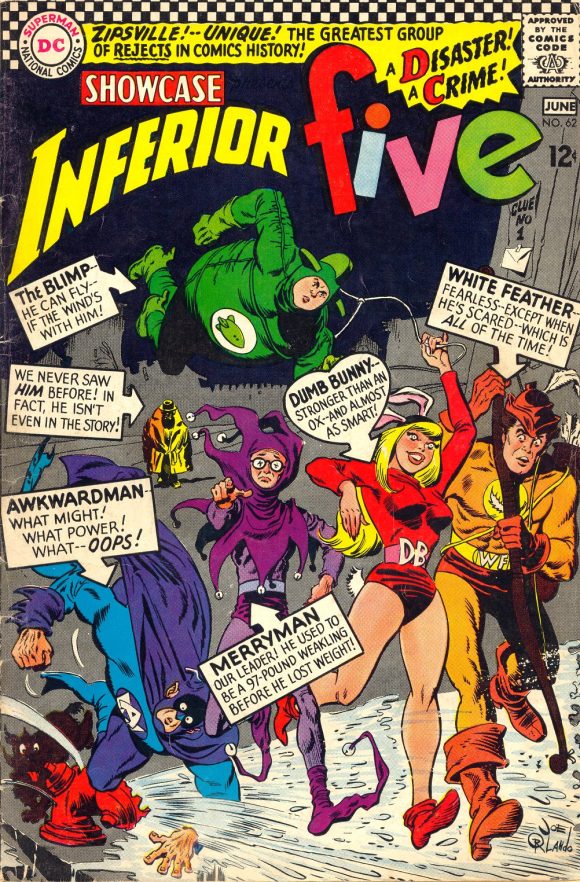
For all his contributions, Nelson Bridwell kept himself mostly to the background. He was naturally shy and soft-spoken, a man who I sometimes felt wasn’t ever quite comfortable in his own skin (but who was also a practicing nudist), overwhelmed by his brasher and more bombastic bosses, first Weisinger, then Julius Schwartz, neither of whom, I’m sorry to say, treated him with the respect he deserved, not only as a person and employee, but for his contributions to the DC mythos.
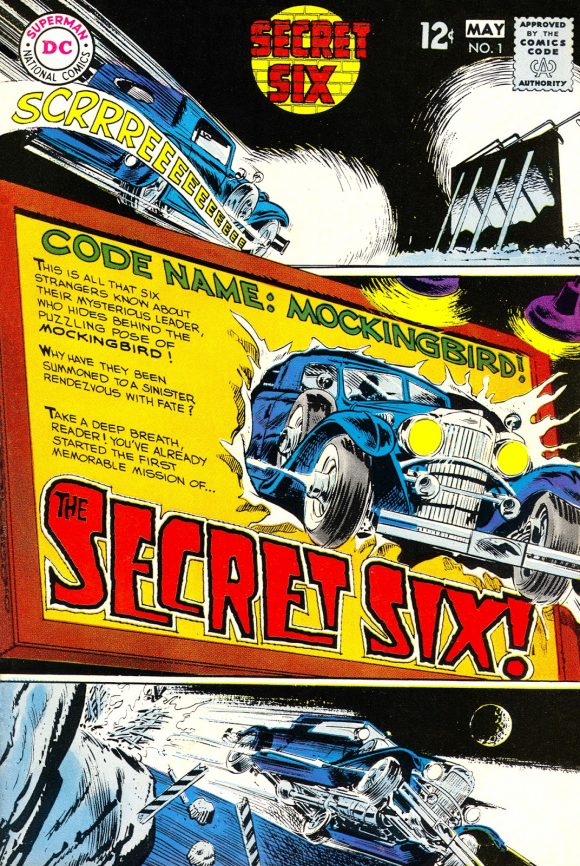
I don’t know how many hours I spent in Nelson’s office, either on business or just talking comics. He seldom discussed his personal life beyond the occasional mention of his family back in Oklahoma. I don’t remember many fanzine interviews with him over the years, but recently came across this one in the pages of Comics Feature #10, the same issue in which my and Carl Gafford’s 1973 interview with artist Murphy Anderson first saw print (and which is reprinted in my book Direct Comments: Comics Creators in Their Own Words). The ENB interview was conducted by and is © Margaret O’Connell, transcribed by Paul Dini (pre-Harley Quinn, of course).

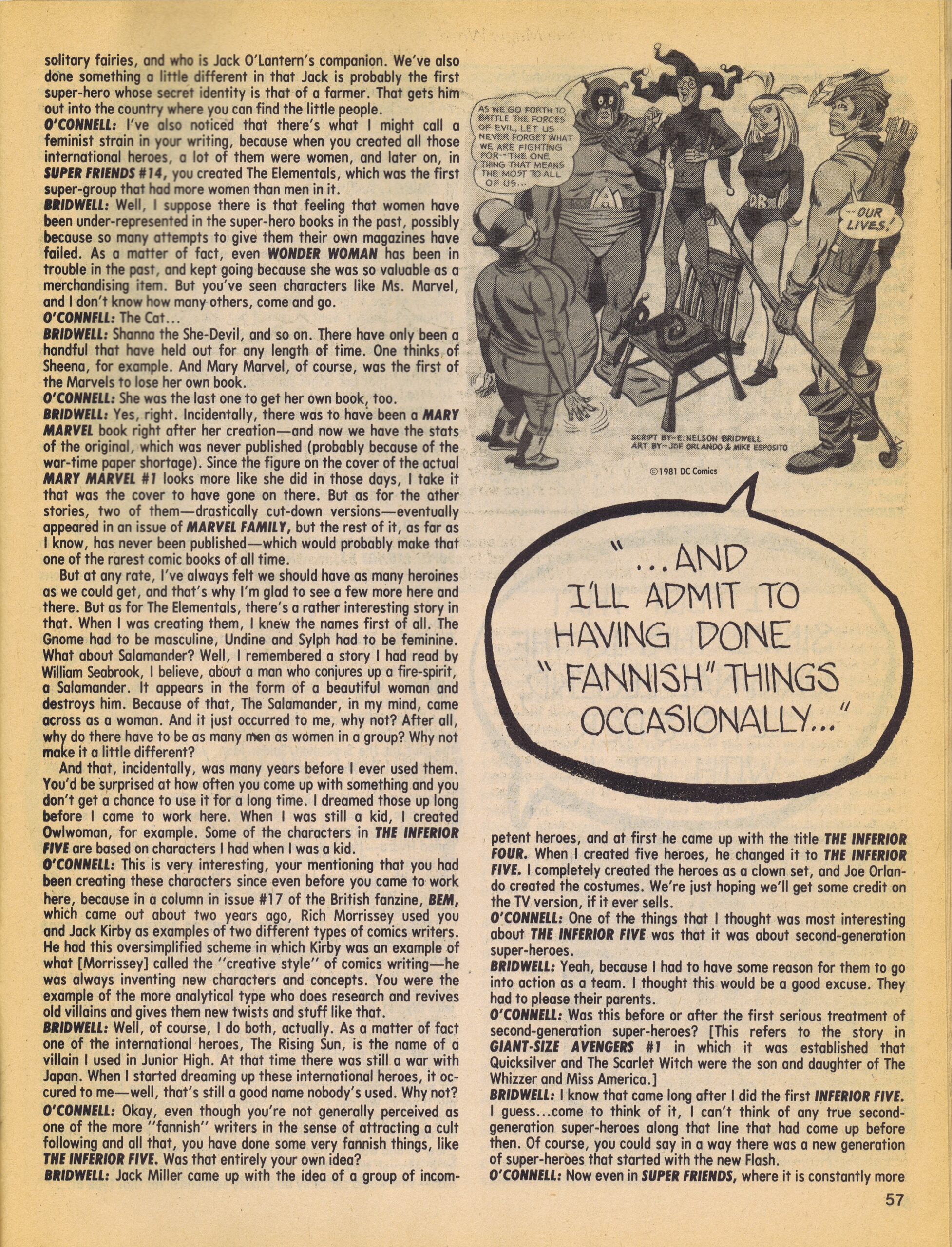
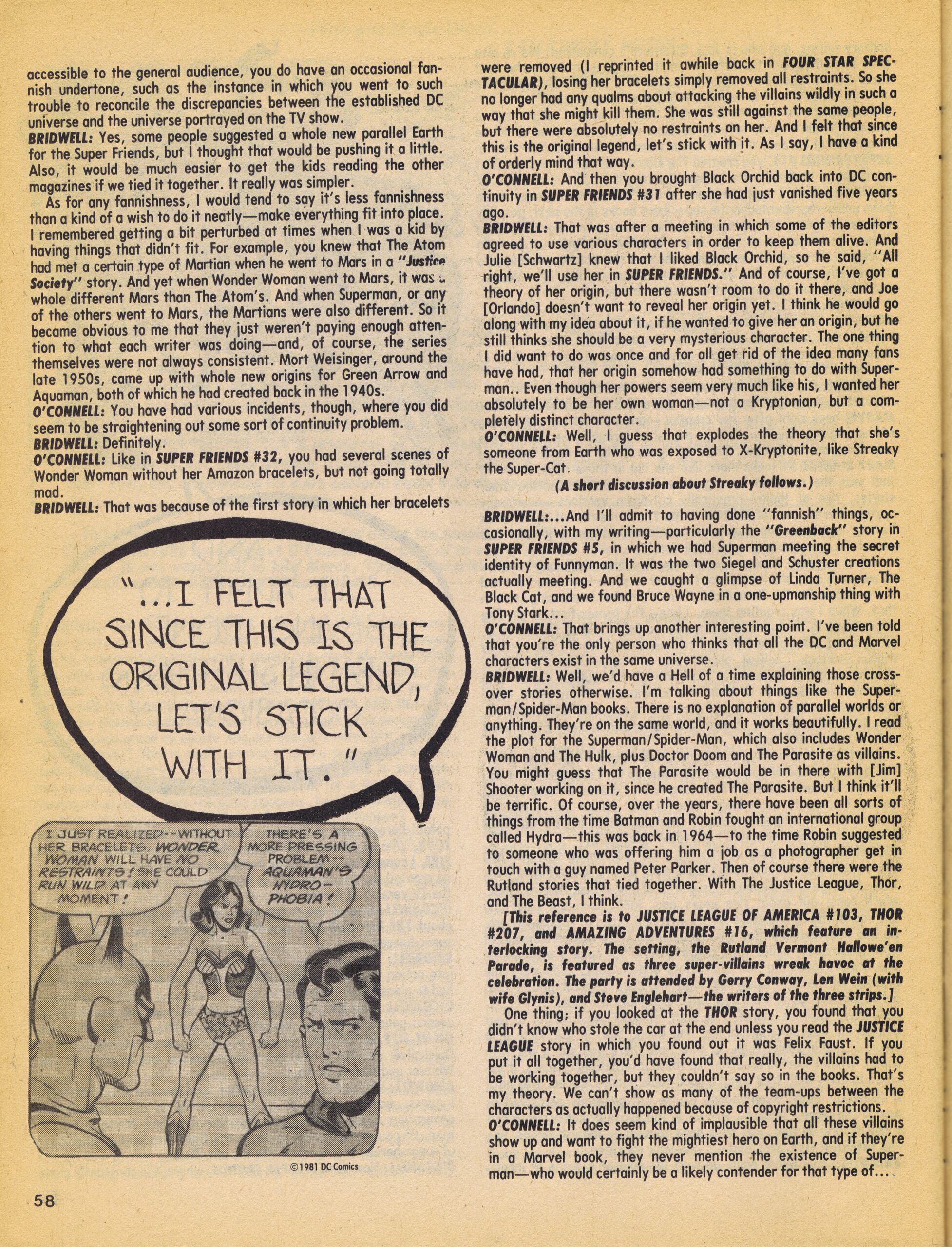
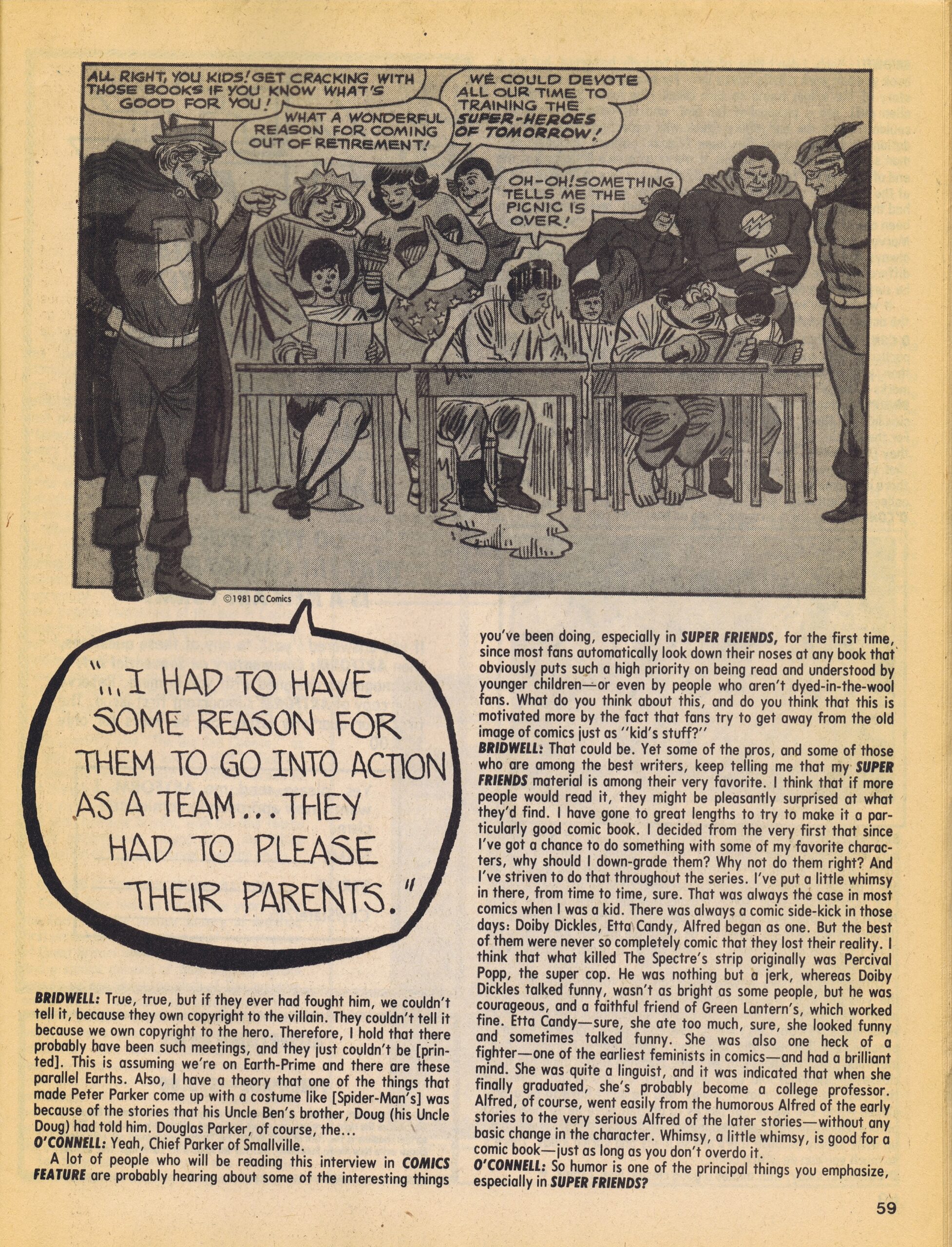

—
MORE
— PAUL KUPPERBERG: My 13 Favorite E. NELSON BRIDWELL Projects. Click here.
— 13 SUPER SPECTACULAR COVERS: An E. NELSON BRIDWELL Birthday Celebration. Click here.
—
PAUL KUPPERBERG was a Silver Age fan who grew up to become a Bronze Age comic book creator, writer of Superman, the Doom Patrol, and Green Lantern, creator of Arion Lord of Atlantis, Checkmate, and Takion, and slayer of Aquababy, Archie, and Vigilante. He is the Harvey and Eisner Award nominated writer of Archie Comics’ Life with Archie, and his YA novel Kevin was nominated for a GLAAD media award and won a Scribe Award from the IAMTW. Now, as a Post-Modern Age gray eminence, Paul spends a lot of time looking back in his columns for 13th Dimension and in books such as Direct Conversations: Talks with Fellow DC Comics Bronze Age Creators and Direct Comments: Comic Book Creators in Their own Words, available, along with a whole bunch of other books he’s written, by clicking the links below.
Website: https://www.paulkupperberg.net/
Shop: https://www.paulkupperberg.net/shop-1
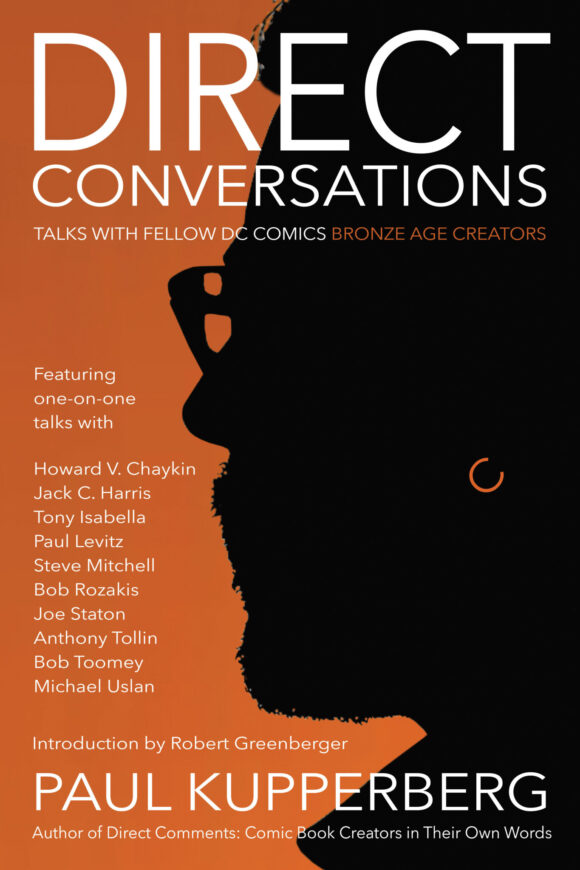

September 22, 2023
How to care for your Monster, that’s what I remember Mr Bridwell for. It so nice to get a broader appreciation for his talents. Great job Paul.
September 25, 2023
Back when I discovered the Inferior Five (in reprints and back issues) in the early 70s I really thought it would have made a great Saturday Morning cartoon show! Imagine Filmation doing it!